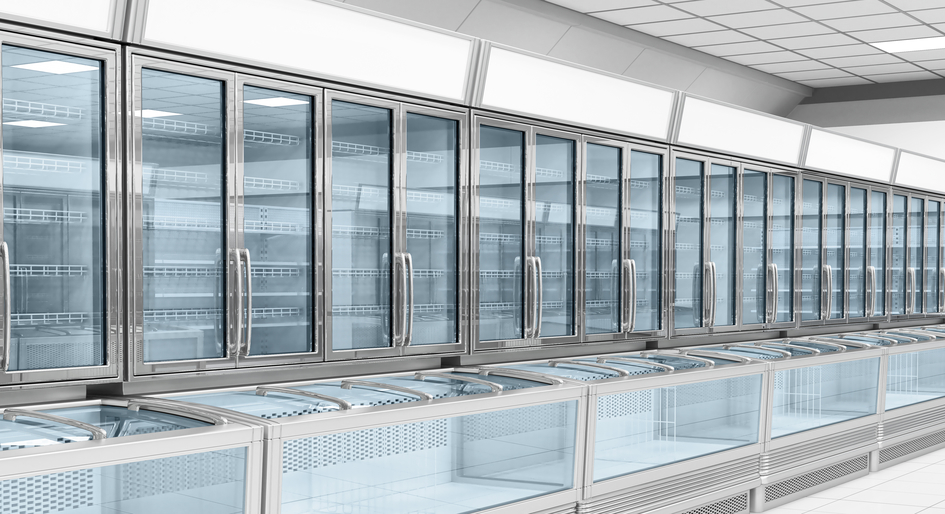Proposed revisions to Quebec’s halocarbon regulation could sideline some commonly used refrigerants before alternatives with lower global warming potential (GWP) can feasibly be in place. The Heating Refrigeration and Air Conditioning Institute (HRAI) of Canada and the U.S. Air-conditioning, Heating and Refrigeration Institute (AHRI) are urging the Quebec government to delay contemplated prohibition dates until mildly flammable replacements for hydrofluorocarbons (HFCs) are adopted into safety standards and building codes.
The HVAC industry advocates are also asking for more flexibility for food refrigeration systems in existing commercial and industrial facilities and assurances that Quebec-based manufacturers can continue to supply markets outside the province. The 45-day public consultation for the draft regulation, which was posted in the Gazette du Québec on July 17, has now closed, but HRAI and AHRI have offered technical input for the next stages of process.
“Due to the significant potential economic losses that our members would face should this regulation pass as written, we are very keen to meet with the Minister and participate in a working committee to assist your team,” Sandy McLeod, HRAI president and CEO, and Helen Walter-Terrinoni, AHRI vice president, regulatory affairs, wrote in an Aug. 31 joint submission to Quebec’s Ministère de l’Environnement.
They warn the proposed new rules will be out of sync with other regulatory steps that must occur so that flammable refrigerants with lower GWP ratings can be introduced into HVAC systems and the facilities that house them. The draft regulation sets a January 1, 2021 deadline to cease the manufacture, sale, distribution or installation of air-conditioning equipment that relies on HFCs with GWP greater than 1,500 (meaning 1,500 times greater than carbon dioxide) and a January 1, 2025 deadline for chillers that use HFCs with GWP in excess of 750.
McLeod and Walter-Terrinoni suggest the first deadline is particularly problematic since there is currently no non-flammable replacement for the “nearly universally used” R-410A HFC refrigerant that would be targeted. That could also have consequences for energy consumption and greenhouse gas (GHG) emissions.
“Adoption of highly efficient HVAC technology, such as ductless units and variable refrigerant flow systems, with 30 to 40 per cent annual energy savings offered over baseline technologies, would also be negatively challenged by the proposed refrigerant transition timeline of 2021,” they maintain. Meanwhile, the lower-GWP refrigerants expected to be the most effective replacements in chillers are flammable and still undergoing necessary due diligence before they can be authorized in safety standards and building codes.
Turning from cooling to refrigeration, McLeod and Walter-Terrinoni call for further clarification that a proposed Jan. 1, 2021 prohibition on installing new HFC-charged units to refrigerate food in commercial or industrial facilities would apply only to newly constructed grocery stores and food production venues. They argue that space and/or ventilation constraints could complicate and increase the cost of introducing new types of equipment into existing facilities, such as hospitals, restaurants, supermarkets and convenience stores. It would also result in multiple refrigerant technologies within a single site, which could undermine operational and energy performance.
McLeod and Walter-Terrinoni point to Canada’s federal halocarbon regulations, which exempt some specialized refrigeration applications, and recommend that Quebec follow suit. “There are unique and custom applications for very low temperature refrigeration for cryogenic cooling, blood bank and other uses that may not be able to effectively meet societal needs with lower GWP refrigerants,” they note.
Quebec’s proposed HFC prohibition dates would apply sweepingly to the manufacture, sale, distribution and installation of designated HVAC equipment. Federal regulations solely target manufacturing, thus allowing the sale and installation of existing inventory — an approach HVAC industry advocates endorse in Quebec to avoid stranding suppliers with unmarketable product.
Another proposed rule for idle equipment is predicted to increase costs for facility owners/managers. A requirement to remove refrigerant from larger units (those with a charge of 30+ kilograms) if they are idle for more than a month would particularly affect the recreational sector where summer shutdowns of ice arenas are common. McLeod and Walter-Terrinoni suggest it should apply only to systems with open compressors.
“HRAI and AHRI fully support the Minister’s efforts to reduce emissions from idled equipment,” they affirm. “However, sealed systems are not emissive and the process to remove refrigerant from these systems and to purge them would result in unnecessary emissions.”




